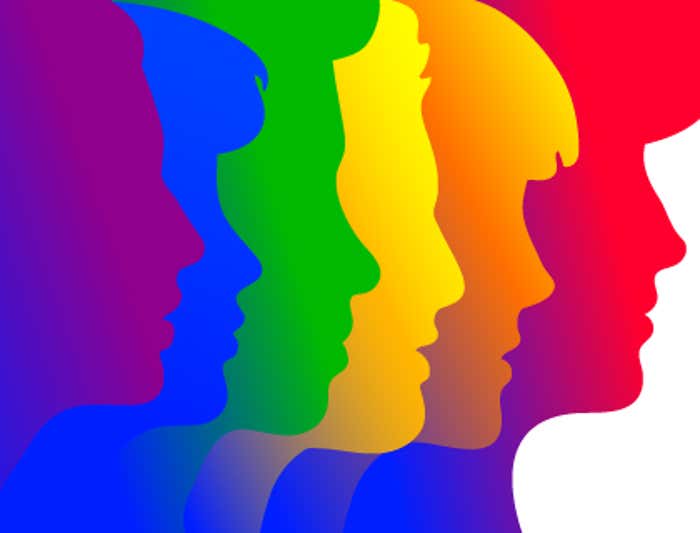
In celebration of Pride Month, all MoFo employees were given the opportunity to watch CURED, an award-winning documentary that recounts the battle to remove homosexuality from the American Psychiatric Association’s Diagnostic and Statistical Manual of Mental Disorders (DSM) in 1973. The film includes original footage and features activists who helped lead the fight.
Following the screening, San Francisco partner Fredo Silva moderated a virtual discussion with the film’s directors, Patrick Sammon and Bennett Singer, and a civil rights activist featured in the film, Rev. Magora Kennedy.
The inspiration for the documentary came to Patrick in late 2014, when a friend asked him to review his screenplay about the life of American gay rights activist Frank Kameny. Included in the screenplay was a scene that “jumped off the page at [Patrick],” which portrayed the notorious speech made by Dr. Henry Anonymous at the 1972 America Psychiatric Association (APA) Annual Meeting. That scene detailed the moment when Dr. John Fryer, who had disguised his appearance using a Richard Nixon mask and a voice-changing microphone, declared to the room filled with attendees: “I am a homosexual. I am a psychiatrist.” Though Patrick was already familiar with the story of Dr. Anonymous, “there was something about the telling that really connected with me and I thought this would be an incredible documentary.” Patrick then recruited his friend Bennett Singer to join him in telling the story of how activists took a stand against the APA’s classification of homosexuality as a mental disorder.
Early on, the duo quickly realized how pivotal this battle was in the fight for LGBTQ+ equality. “As long as gays and lesbians were classified as mentally ill, then business and government were going to use that as an excuse to discriminate,” Patrick explained.
The film includes first-person documentation of some of the treatments LGBTQ+ people were subjected to, such as electro-shock therapy and lobotomies. Patrick and Bennett felt it was vital to include archival visual materials, despite the difficulties in tracking them down, in order to convey the very real dangers presented by the DSM’s classification of homosexuality as a mental disorder. “This wasn’t just some words in a dusty medical manual on a shelf,” Bennett remarked. “These are really life and death issues, and we wanted to make that clear by documenting and showing what people were subjected to.”
As they continued their search for visual materials, they came across a segment of The David Susskind Show that, according to Bennett, most likely hadn’t been viewed in over 50 years. That footage would lead the duo to one of the film’s central storytellers: Rev. Magora Kennedy.
In 1971, Rev. Kennedy and six other lesbian activists—including Barbara Gittings—appeared on Susskind’s talk show, where they argued against the APA’s classification of homosexuality as a mental disorder. Rev. Kennedy recounted her experience on the talk show to Fredo, explaining Susskind’s disrespectful and bigoted behavior toward the group of women. During the segment, Rev. Kennedy asked Susskind, “Does it make you feel good to say we are sick?”
Bennett added that Susskind’s attitude was very indicative of the opposition’s view of homosexuality. The talk show host’s “deep-seated belief” was legitimized “because that is what the psychiatrists are telling us and that’s what’s in the DSM.”
When asked what lessons she hopes viewers will draw from the film regarding the process of bringing about lasting social change, Rev. Kennedy said she hopes people will realize that we are all human. “It’s not anybody’s fault that anybody is gay,” she said. “These are your children; love them, love yourself.”
Though the DSM battle was won, the fight for LGBTQ+ equality still continues. Not long after the APA board voted to declassify homosexuality as a mental disorder, the first conversion therapy organizations began to form. Therapists realized they could no longer “hide behind the imprimatur of the APA,” Patrick explained. “They had to justify this so-called treatment in other ways.” Although the pseudoscientific practice has been proven to increase rates of depression and suicide in young adults, conversion therapy is still practiced in the United States today.
One considerable difference between 50 years ago and the present day, Bennett noted, is that the APA is now “leading the charge against conversion therapy.” What’s more, the organization is now led by an openly gay psychiatrist. “As a symbol of the way change can happen institutionally, I think that’s very striking,” Bennett said.
When asked how lessons from the film can be applied to activism today, particularly in regard to new legislation such as the “Don’t Say Gay” bill in Florida, the three explained that it’s important for everyone to come together and humanize the issues. “If you look at the history of our movement—and this is true with most social change movements—there needs to be both the ‘Insiders’ and the ‘Outsiders,’” Patrick explained. “You need the anger in the streets—creating that energy—but if you don’t have people within the halls of power to translate that energy into changes and policy and law, then the ‘Outside’ energy doesn’t do any good.”